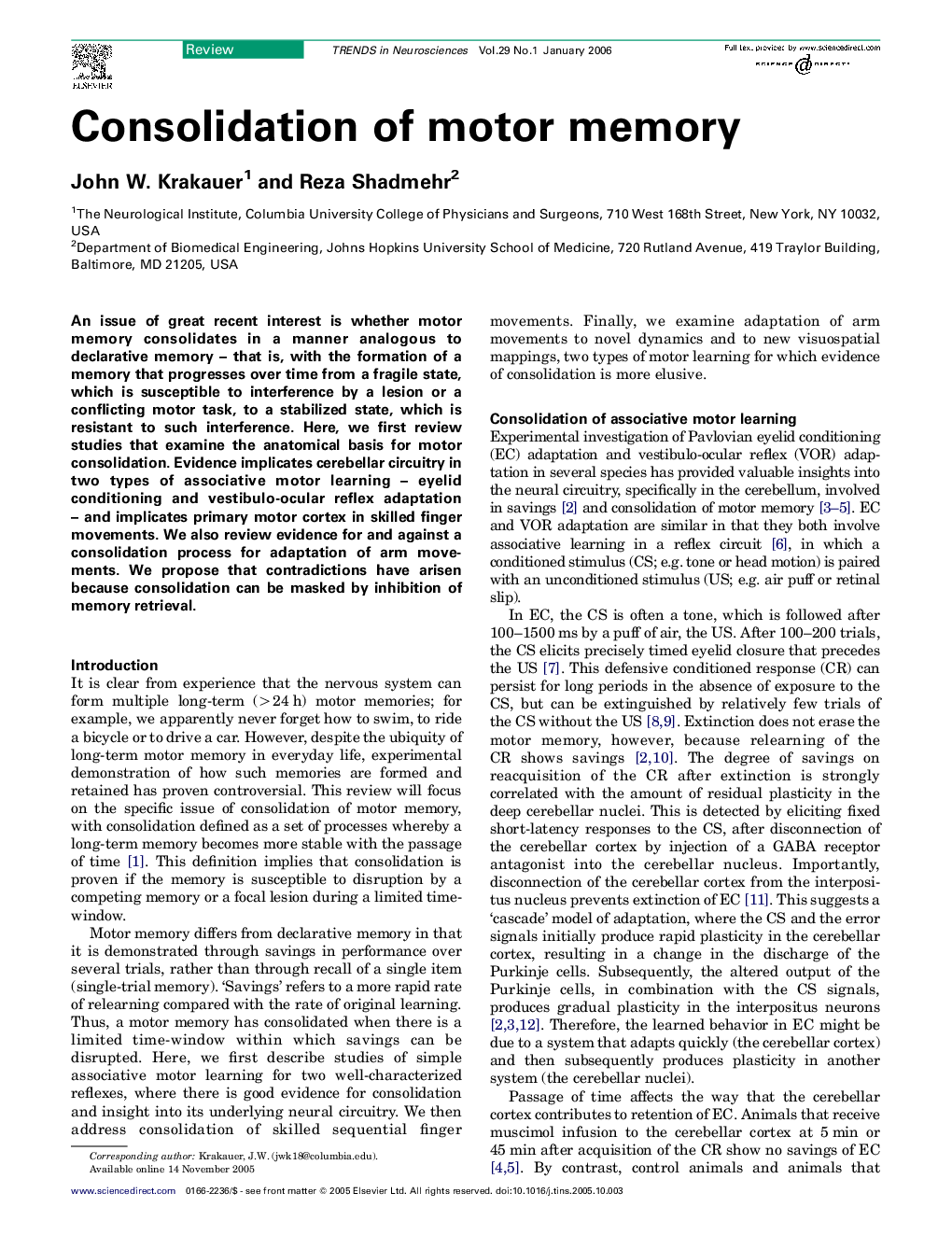| Article ID | Journal | Published Year | Pages | File Type |
|---|---|---|---|---|
| 4354825 | Trends in Neurosciences | 2006 | 7 Pages |
An issue of great recent interest is whether motor memory consolidates in a manner analogous to declarative memory – that is, with the formation of a memory that progresses over time from a fragile state, which is susceptible to interference by a lesion or a conflicting motor task, to a stabilized state, which is resistant to such interference. Here, we first review studies that examine the anatomical basis for motor consolidation. Evidence implicates cerebellar circuitry in two types of associative motor learning – eyelid conditioning and vestibulo-ocular reflex adaptation – and implicates primary motor cortex in skilled finger movements. We also review evidence for and against a consolidation process for adaptation of arm movements. We propose that contradictions have arisen because consolidation can be masked by inhibition of memory retrieval.
